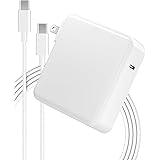BetterYouJourney.com is a participant in the Amazon Services LLC Some of the links in our posts are affiliate links. Click here to see full Disclosure.
In today’s health-conscious world, fitness coaching has emerged as a lucrative career path that not only promotes wellness but also brings substantial financial rewards. As with any business endeavor, transforming passion for health and exercise into a profitable venture requires a great deal of knowledge, planning, and smart strategies. This informative guide will delve into essential points like gaining a thorough comprehension of the fitness industry, obtaining the needed certifications and education, aspects of business and financial planning, as well as effective marketing and networking techniques.
Understanding the Fitness Industry
Understanding the Fitness Industry
The first step toward making money from fitness coaching is gaining an in-depth understanding of the fitness industry overall. This requires dedicated research into the sector’s current trends, demands, and profitability. Investigate different segments within the fitness field, from personal training and sports coaching to wellness counseling and rehabilitation. Understand the potential income in various areas, the competition, and what customers are looking for in fitness offerings.
Identify Your Area of Interest
Next, identify the specific type of fitness coaching that you’re interested in. This could range from general fitness coaching for amateurs, specialized coaching for professional athletes, or even nutritional coaching for fitness enthusiasts. Your choice will depend on your own fitness knowledge, qualifications, your passion and, of course, market demand.
Immerse Yourself in Fitness Trends
Keep pace with the latest fitness trends to stay relevant and appealing to potential clients. This might mean staying current with new training programs, dietary tips, or mental health practices as they relate to physical fitness. Therefore, continuous learning should be part of your career as a fitness coach. Subscribing to fitness journals, attending workshops, and gaining more certifications can enhance your credibility and attract more clients.
Investigate Profitability
Profitability is a critical factor in your venture. Examine the fees that fitness coaches charge in your area or your desired niche. Look at what professional coaches charge and also mid-level and beginner coaches. Consider factors like the venue (where the fitness training takes place), travel costs, and whether or not electronic or digital services, like online coaching, could be an avenue for you. Balance this against your potential income to gauge feasibility.
Marketing Strategy for Fitness Coaching
Once you’ve gained a solid understanding of the fitness industry landscape and have identified the type of fitness coaching you want to pursue, it’s time to devise a marketing strategy. This could involve networking within the community, leveraging social media platforms, creating a dynamic website, or offering introductory rates for first-time clients. The key here is to highlight your unique offerings and express the benefits clients will gain from your coaching.
Continuous Adaptation
One more critical aspect of making money in fitness coaching is the ability to adapt and be flexible. Trends can change quite rapidly in this field, so you need to be agile enough to adjust and revise your plans accordingly. This mindset will ensure you stay relevant and continue to attract clients, so you can enjoy a successful career in fitness coaching.

Certification and Education
Education and Certification: Building Your Foundation as a Fitness Coach
One of the first steps to making money as a fitness coach is acquiring education and certification. These serve as vital foundations, not only for developing your skillset and knowledge, but also for winning the trust of potential clients who seek experienced and certified fitness coaches.
Primarily, you need at least a high school diploma. For a more robust background, consider pursuing a degree related to fitness, such as Kinesiology, Exercise Science, or Nutrition. Having such qualifications will give you a competitive edge and make you more attractive to potential clients who are seeking expert advice or training guidance.
Apart from that, obtaining certification in fitness coaching is crucial. Note that certification standards might vary from one area to another, so it’s essential to research and identify the most recognized and appropriate programs for your specialization.
Programs accredited by the National Commission for Certifying Agencies (NCCA) are typically the most respected in the industry. Examples include the American Council on Exercise (ACE), National Academy of Sports Medicine (NASM), or the International Sports Sciences Association (ISSA).
Invest in Continuing Education to Stay Ahead
A fitness coach’s learning does not end at getting certified. Fitness trends evolve, new workout methods emerge, and strategies for nutrition and wellness constantly change. Therefore, investing in continuing education enables you to stay updated with industry changes, thus making you a valuable asset to your clients.
Sign up for workshops and conventions, enroll in online courses, or consider advanced certification options. Additionally, consider subscribing to fitness and nutrition journals to keep up-to-date with the industry’s academic side. Also, make it a point to continually revisit and revise the basics to ensure a strong foundational understanding.
Think of this as investing in your personal brand as a fitness trainer. Clients trust coaches who demonstrate continuous education, up-to-date techniques, and advanced knowledge.
Making Use of Your Education and Certification to Attract and Retain Clients
The ultimate goal of education and certification is to attract and retain clients. Utilize your qualifications to market yourself as a professional fitness coach. Use your education and certificate to add credibility to your advertising efforts, and make sure potential clients know about your ongoing education endeavors.
Moreover, the experience and knowledge gained through these certifications will emotionally and physically benefit your clients, resulting in customer satisfaction and retention. Happy clients not only continue using your services, but also recommend you to others, thereby significantly contributing to your earning potential as a fitness coach.
Remember, the connection between your education, certification, and earning capacity often comes down to how well you use what you’ve learned to provide excellent service to your clients.

Business Planning
Identifying Your Fitness Coaching Niche
To kickstart your journey in making money from fitness coaching, it’s essential to identify your niche. Your niche is the specific area of fitness coaching you want to specialize in. For instance, you could cater to weight loss, muscle toning, sports-specific training, or senior citizen fitness. Identifying your niche will allow you to differentiate yourself in a crowded market and create specific services that appeal directly to your target audience.
Understanding Your Target Audience
Equally paramount to your business success is understanding who your target audience is. Your target audience consists of the individuals most likely to be interested in your services. Depending on your niche, these could be athletes, busy professionals, or older adults looking to maintain their health. The better you understand your target audience, the more effectively you can tailor your marketing efforts and services to meet their needs. Knowing your audience helps you determine where to market, what messaging to use, and how to price your services.
Pricing Your Fitness Coaching Services
Strategically pricing your fitness coaching services is another crucial step. Your price should reflect your expertise, the value of the service you’re providing, your target audience’s paying capacity, and your competitors’ pricing. Market research can help you get a sense of how other fitness professionals in your niche are pricing their services. Remember, pricing shouldn’t just cover your costs, but should also allow you to generate a consistent profit to sustain and grow your business.
Setting Financial Goals
Upon determining your niche, target audience, and pricing, it’s time to establish clear financial goals. These goals will serve as the roadmap for your business, guiding your operations, marketing efforts, and service development. They should cover your desired income, projected expenses, and anticipated revenues. When setting these goals, it’s important to be realistic by considering factors like start-up costs, operating expenses, and your expected client base.
Creating a Financial Plan
Once you have your financial goals in place, create an actionable financial plan. This plan should detail how you will reach your financial goals through income, expenses, and revenue management. To generate income consistently, you could sell memberships, offer package deals or run promotions. As for expenses, they should be managed effectively to ensure profitability. This could involve negotiating better deals with suppliers or utility companies, saving on overhead costs, or automating certain tasks to enhance productivity.
Differentiating Your Fitness Coaching Business
Standing out in the highly competitive fitness industry can be challenging, but differentiating your fitness coaching business is essential. Differentiation could be through unique training programs, exceptional customer service, or leveraging technology. For example, offering virtual training sessions can set you apart from competitors who only provide in-person sessions. Differentiation not only attracts clients but also keeps them loyal to your services, ultimately leading to business growth and increased revenue.
Promoting Your Fitness Coaching Business
Lasty, to reach your target audience and convert them into paying clients, you will need to promote your business effectively. This could involve building a strong online presence through social media platforms, search engine optimization (SEO), email marketing, content marketing, and more. Additionally, consider offline methods like networking at local events, partnerships with related businesses, or inclusion in local publications.

Marketing and Networking
Effective Marketing Techniques for Fitness Coaching
To attract clients as a fitness coach, a professional website should be considered a must. The website should offer credible information about your qualifications, experience, and the fitness services you provide. Personal testimonials and success stories can be a powerful element to include as well. Techniques such as SEO (Search Engine Optimization) can help your website gain visibility and reach a wider audience by ranking higher in search results.
In addition to your website, you can consider offline advertising. Flyers, billboards, or local newspaper ads can successfully target your local community. Offering free fitness seminars or workshops in local parks or community centers can also work as an effective form of advertising, giving potential clients a preview of your skills and training style.
Leveraging Social Media for Fitness Coaching
Harnessing the power of social media is essential in the digital age. Platforms such as Facebook, Instagram, Twitter, and LinkedIn can be utilized to expand your reach and attract more clients. Post engaging photos and videos of your training sessions, fitness tips, healthy recipes, progress pictures, or success stories. The key is consistency and engagement – regular posts and timely interaction with your followers can create a loyal online community which can convert into clients.
Pay-Per-Click Advertising and Sponsored Posts
Consider investing in Pay-Per-Click (PPC) ads on platforms such as Google Adwords. This can drive highly targeted traffic to your website, by placing your ad in front of individuals searching for fitness related topics. On social media platforms, you can use sponsored posts to broaden your reach to potential clients beyond your current following.
Networking in the Fitness Industry
Networking is instrumental in any industry, and fitness coaching is no exception. Connect with other fitness coaches, personal trainers, health specialists and gym owners. Sharing experiences and insights can contribute to your professional development. These connections can sometimes provide referrals, leading to new clients.
Attending fitness industry events or seminars could also be beneficial for networking. These events not only provide an opportunity to learn about new training methods, equipment, or trends but also can help in building professional relationships. Industry events can also be a platform to showcase your skills or knowledge, further advertising your fitness coaching services.
Remember, building a successful fitness coaching business takes time, patience and persistence. With the right planning and execution of marketing strategies and networking, you can successfully attract and retain clients.

Taking into consideration the multitude of aspects covered herein, it’s clear that a profitable fitness coaching career requires far more than just a love of fitness. Certainly passion for well-being and a commitment to helping others are fundamental, but realizing profitable success also necessitates understanding the fitness industry, obtaining the right education and certifications, smart business planning, and skillful networking and marketing. With dedication, patience, and the right approach, you can turn your passion for fitness into a rewarding and successful business venture.








